Signe Rätsep
Chief Specialist of the Legal Information and Judicial Training Department of the Supreme Court
Statistical information on the work of the Supreme Court is collected on the basis of procedural requests submitted to the Supreme Court and the matters they have reviewed. Information on the reviewed matters and requests for proceedings is collected in three types of court proceedings: civil, administrative and offence proceedings. In constitutional review proceedings information is collected only on the matters reviewed. In requests for proceedings consideration is given to appeals in cassation, appeals against court rulings and applications for review as well as state-funded legal aid applications and legal aid applications. The records of reviewed matters are kept according to the matters.[1]
Review of Requests for Proceedings in the Supreme Court Chambers
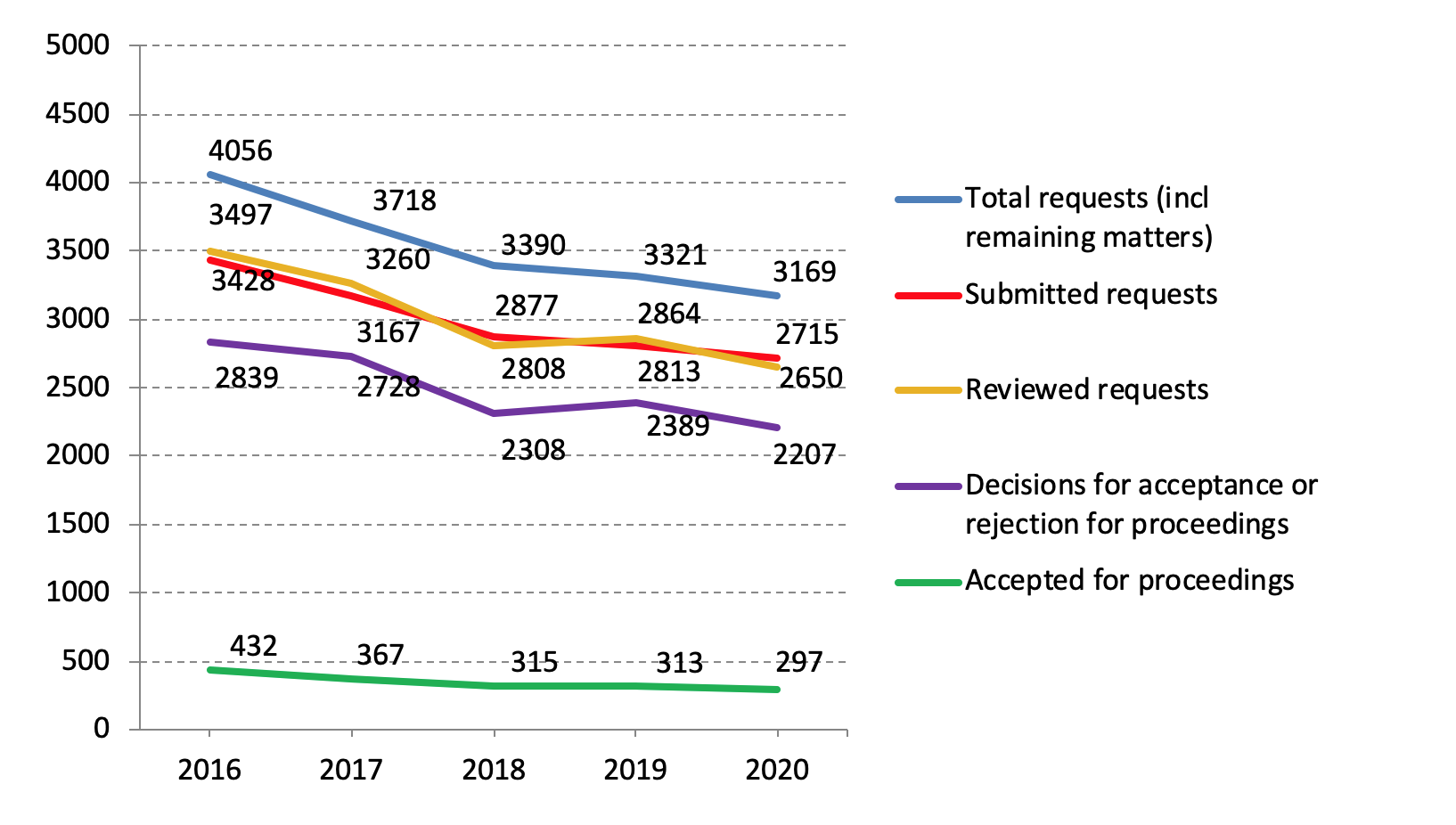
According to law the Supreme Court has the right to decide whether or not to process the requests for proceeding submitted to the court for the purpose of ensuring the legality of lower court decisions, harmonizing court practice or further developing of procedural law.
In 2020 13% of the requests (297 out of 2207) were processed as a result of acceptance or non-acceptance in procedure. In comparison: in 2019 13% of requests (313 out of 2398) were processed, in 2018 14% of requests (316 out of 2309) were processed and in 2017 13% of requests (367 out of 2728) were processed. A year before that this indicator was a percent higher, that is 15% (432 out of 2839).
The performance of the Supreme Court[2] in reviewing the requests for proceedings (incl. state-funded legal aid and legal aid) was 98% in 2020 (2651: 2715) and 102% in 2019 (2864: 2813).
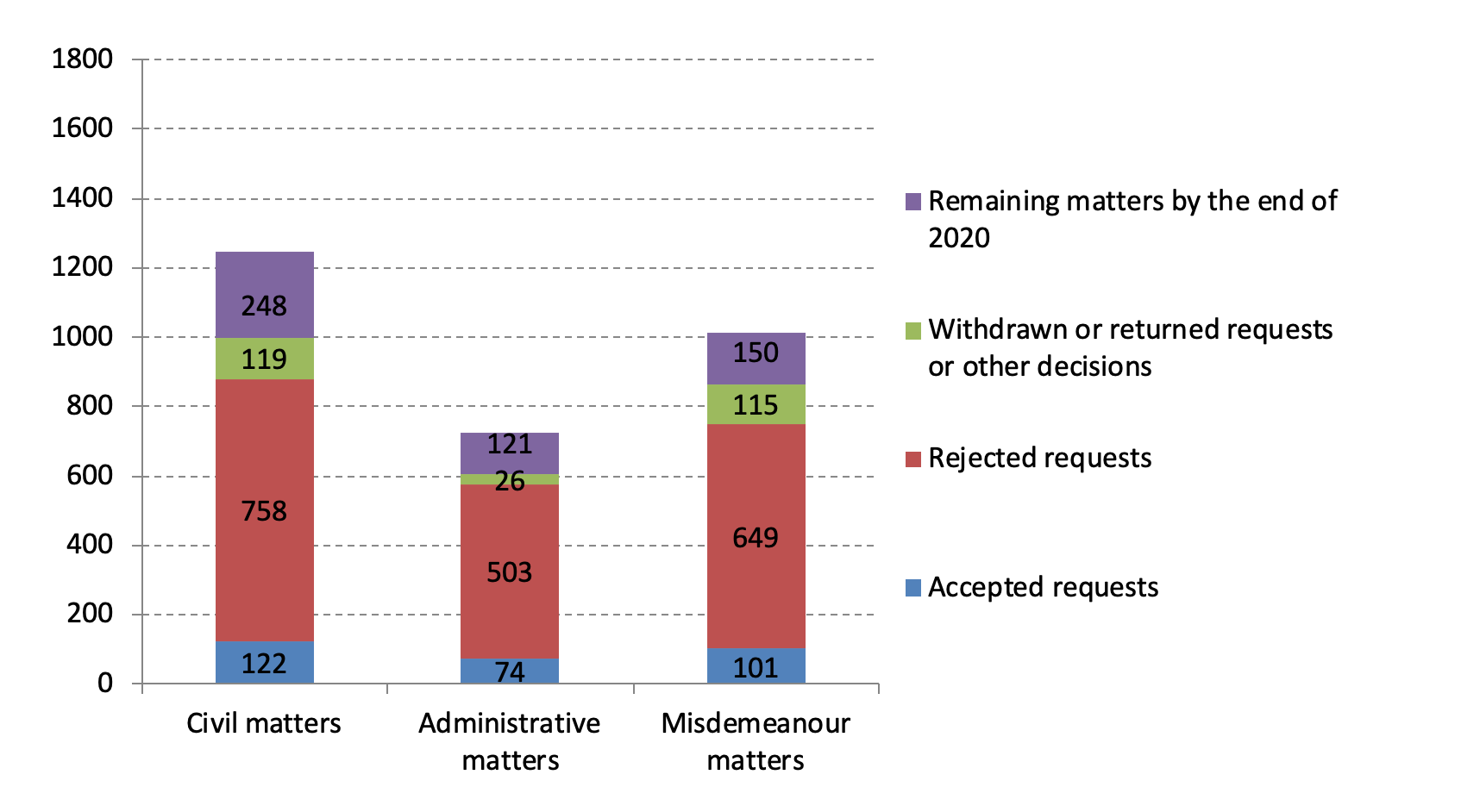
The Civil Chamber had total of 1287 requests for proceedings (1290 in 2019), of which 1098 were filed in 2020. The Civil Chamber reviewed 1039 requests (1100 in 2019). They made decisions on acceptance or rejection for 880 requests (934 in 2019), of which 122 were accepted for processing (157 in 2019). The performance of the Civil Chamber in reviewing the requests for proceedings (incl. state-funded legal aid and legal aid) was 95% in 2020 (1040: 1098) and 102% in 2019 (1100: 1080).
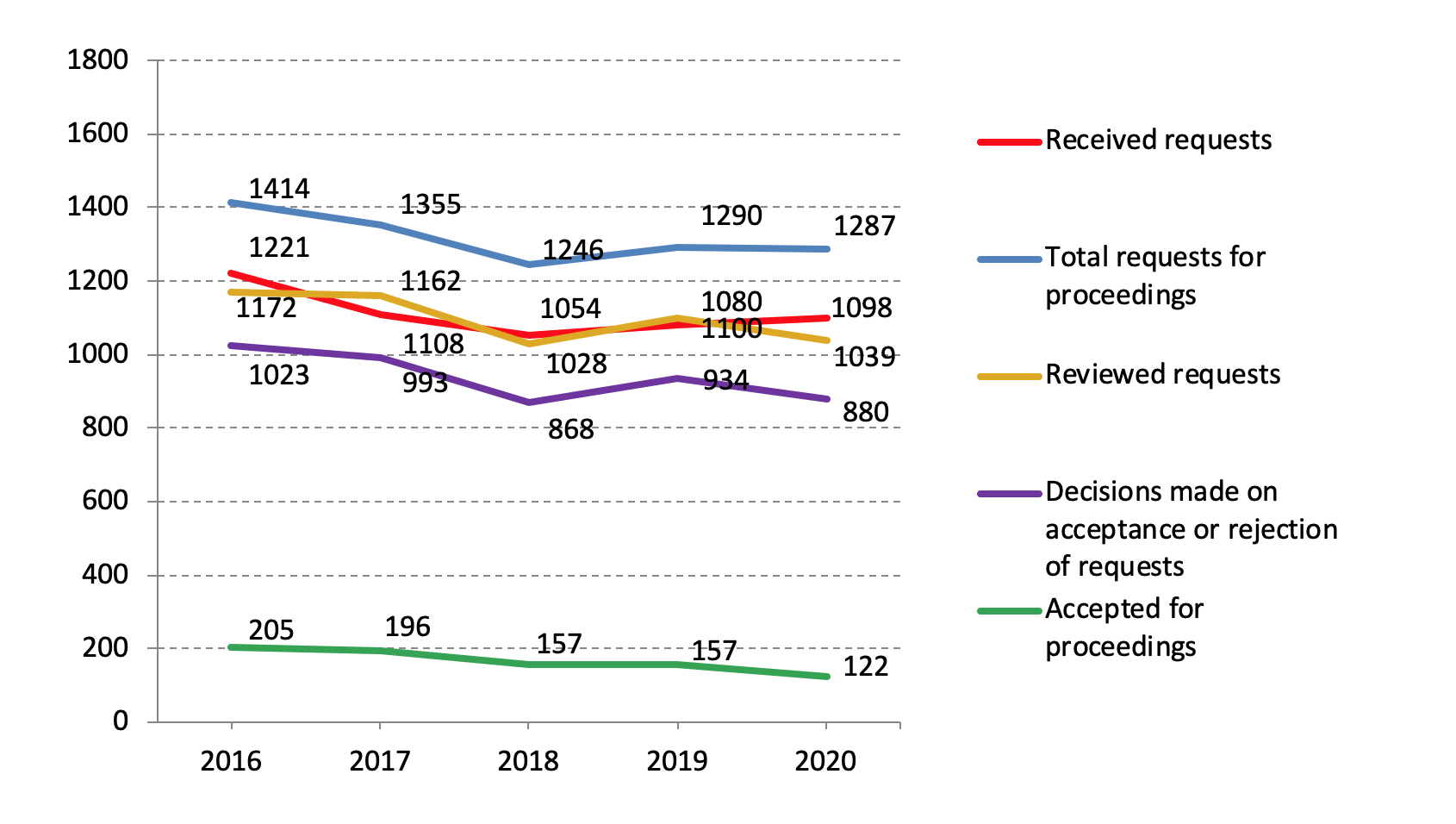
The Administrative Law Chamber had total of 735 requests for proceedings in 2020 (809 in 2019), of which 626 were filed in 2020. The Administrative Law Chamber reviewed 614 requests (698 in 2019) and made decisions on acceptance or rejection for 578 requests (663 in 2019). Of those, 74 were accepted for processing (75 in 2019). The performance of the Administrative Law Chamber in reviewing the requests for proceedings (incl. state-funded legal aid and legal aid) was 98% in 2020 (615: 626) and 107% in 2019 (698: 651).
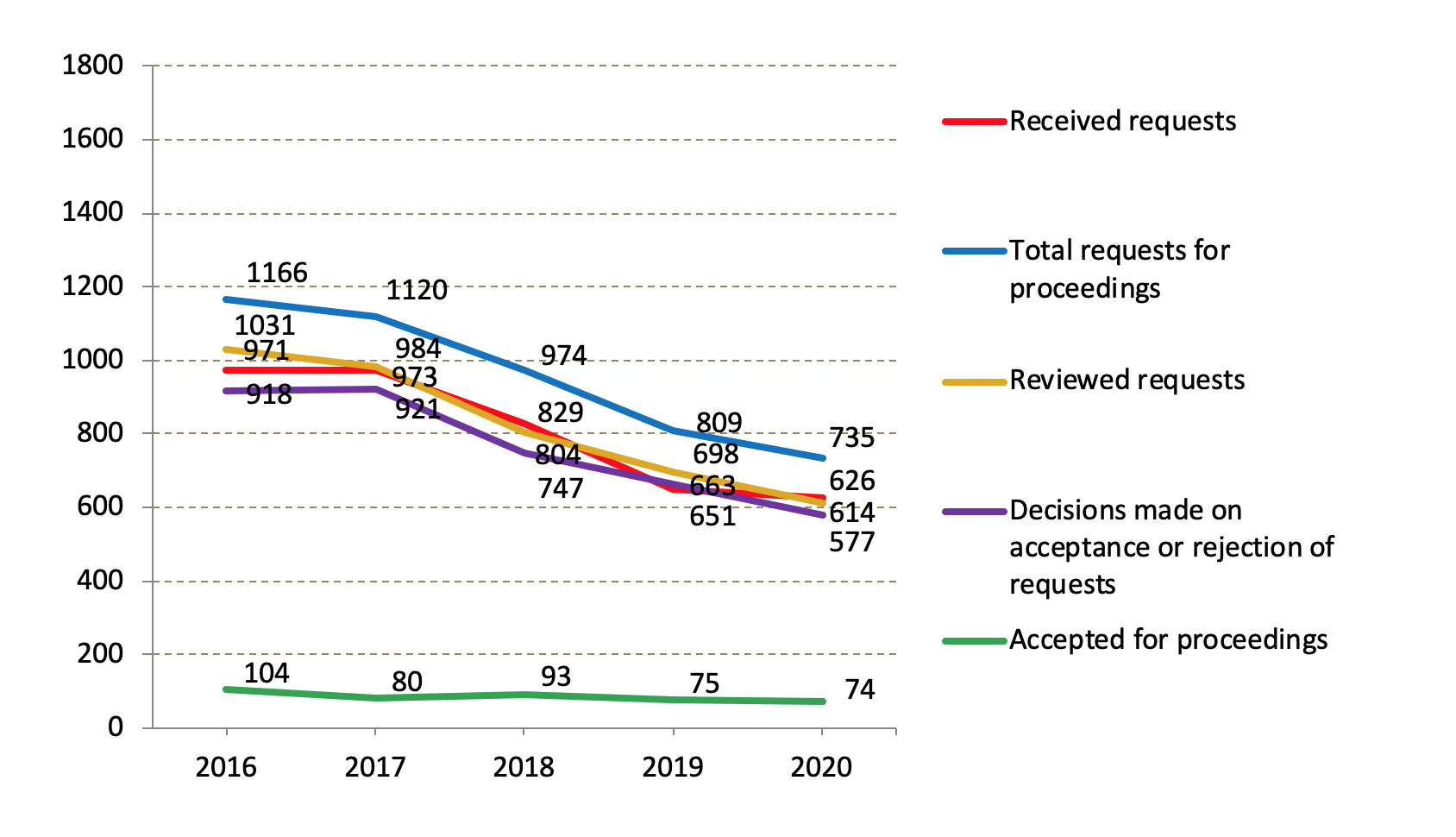
The Criminal Chamber received 1147 requests for proceedings in 2020 (1222 in 2019), of which 991 were filed in 2020. They reviewed 997 requests (1066 in 2019) and made decisions on acceptance or rejection for 750 of them (792 in 2019). 101 requests were accepted for processing (81 in 2019). The performance of the Criminal Chamber in reviewing the requests for proceedings (incl. state-funded legal aid) was 101% in 2020 (996: 991) and 98% in 2019 (1066: 1082).
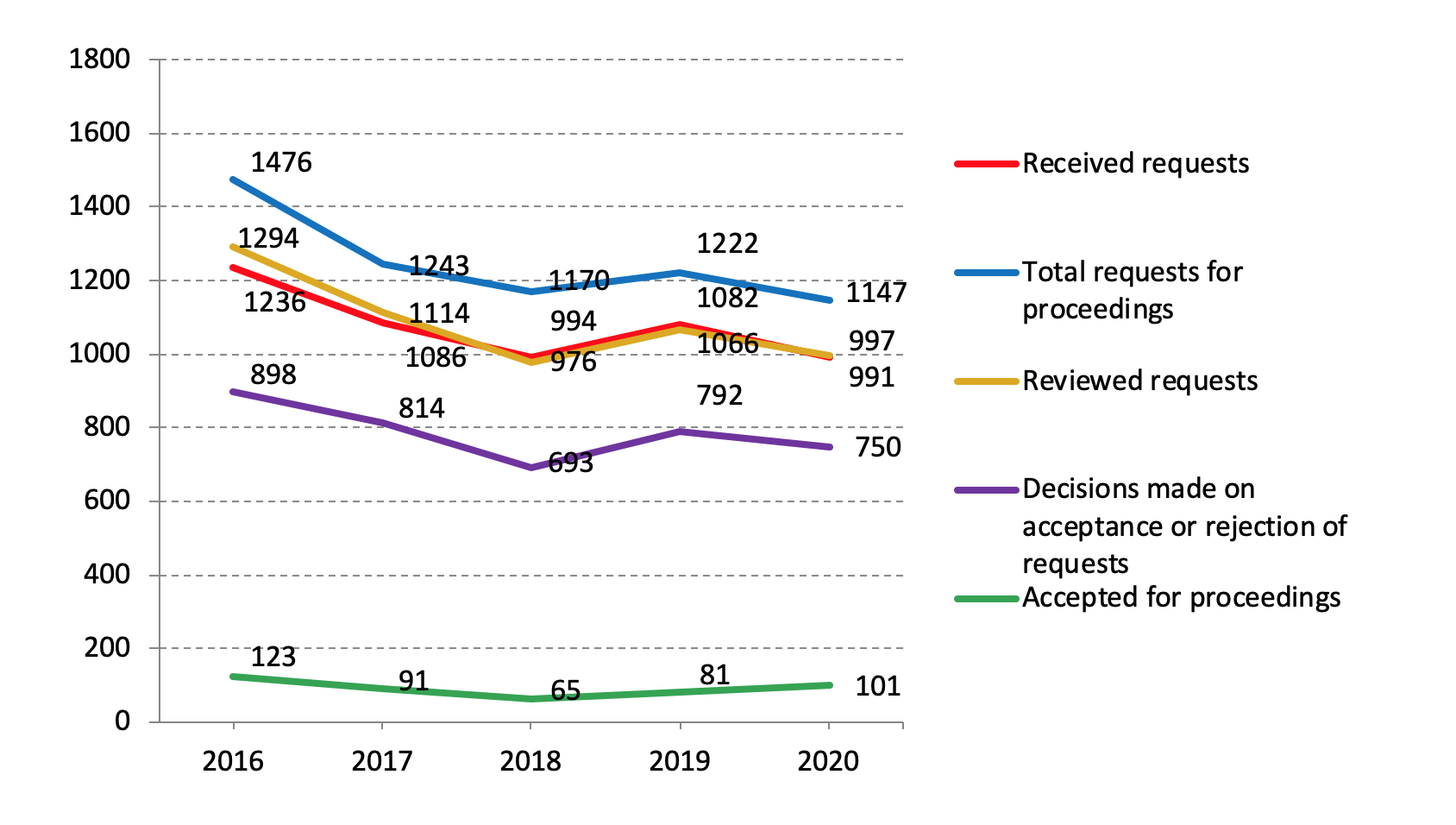
Results of Reviews of Matters in Supreme Court Chambers
Constitutional Review Proceedings
12 matters in constitutional review procedure were reviewed by the Supreme Court in 2020. On three occasions the constitutional review matter was resolved by the Supreme Court en banc. [3] In the matters reviewed by the Constitutional Review Chamber and the Supreme Court en banc, the disputed provisions of legal acts were declared unconstitutional and invalid in three matters. Four requests were rejected and five petitions were rejected without review. Table 1 below shows the results of these constitutional review matters in more detail.
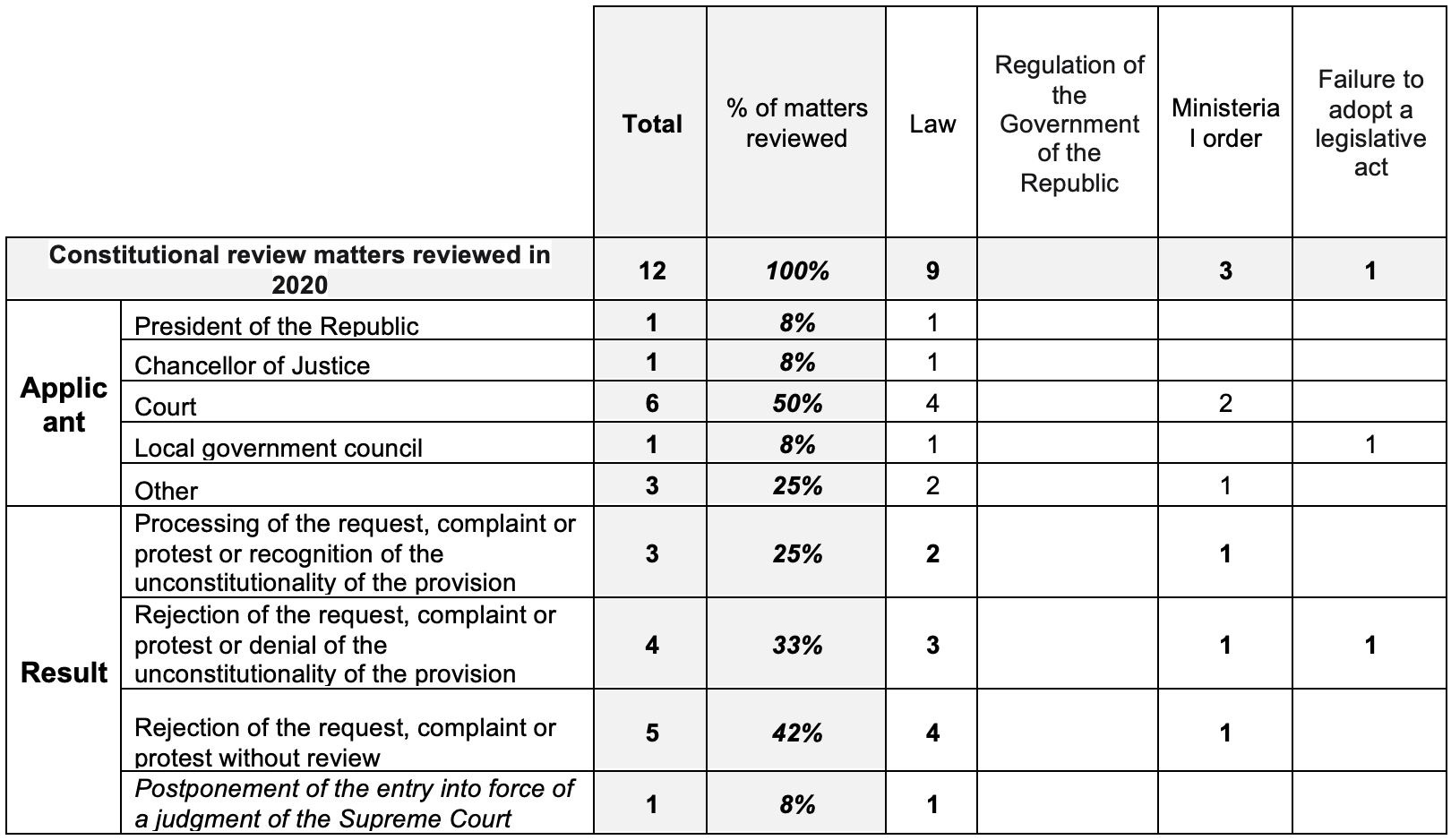
Review of Matters in the Criminal, Administrative Law and Civil Chambers
The Criminal Chamber adjudicated the total of 88 offense matters, 75 of which were criminal and 13 of which were misdemeanour matters. The performance of the Criminal Chamber in the main proceedings was 109% (89:82) in 2020 and 90% (66:73) in 2019.
The Civil Chamber adjudicated the total of 102 matters. The performance of the Civil Chamber in the main proceedings was 96% (102: 106) in 2020 and 101% (141: 140) in 2019.
The Administrative Law Chamber adjudicated 68 administrative matters. The performance of the Administrative Law Chamber in the main proceedings was 100% (68: 68) in 2020 and 117% (82:70) in 2019.
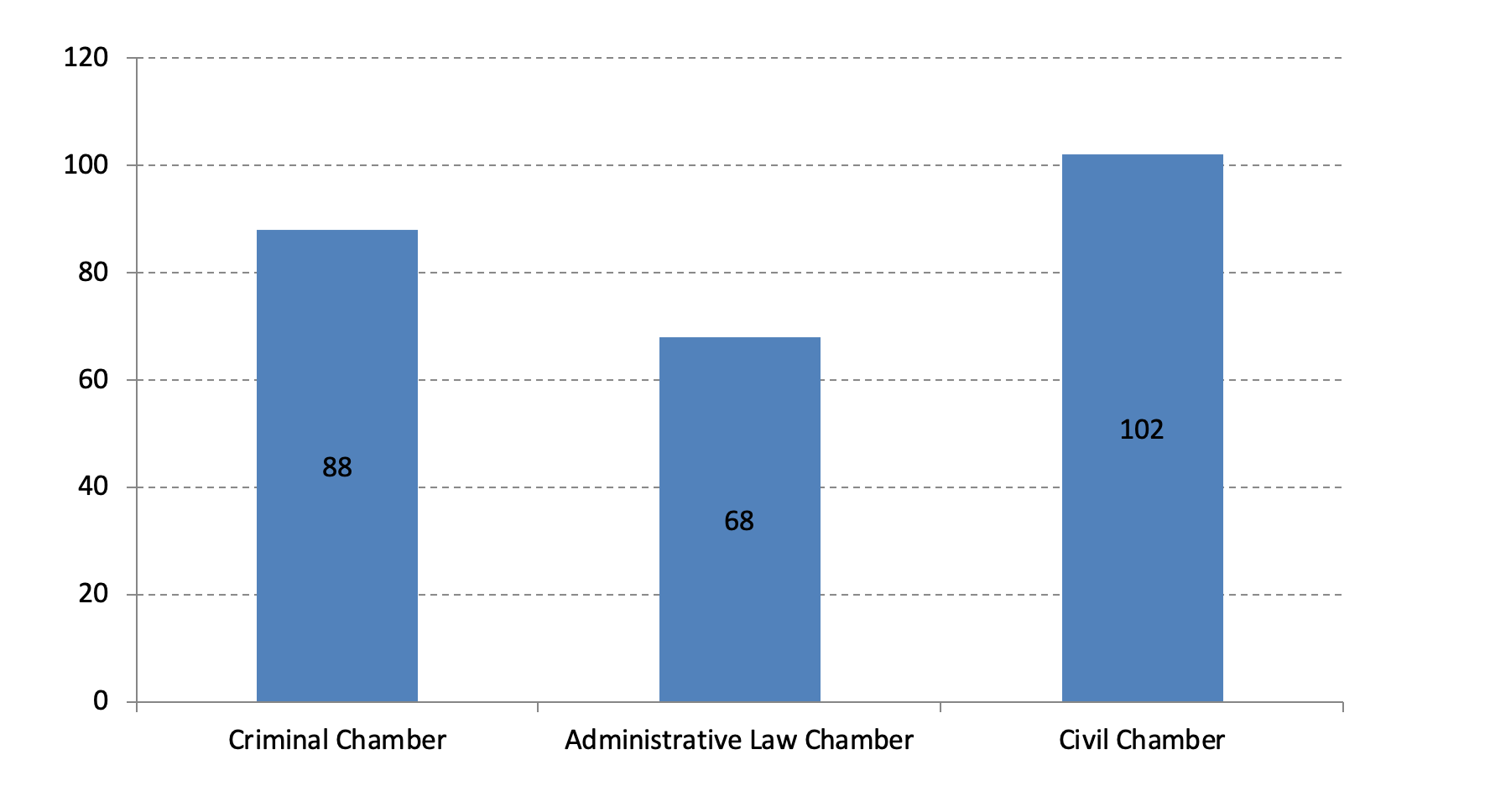
____________________________
[1] More detailed information on requests for proceedings and review of matters in the Supreme Court since 1993 is available on the Supreme Court’s website https://www.riigikohus.ee/et/riigikohus/statistika.
[2] Performance – the ratio of requests reviewed during the year to the number of requests received during the same period.
[3]The following matters are included in the matters resolved by the Supreme Court en banc: 1) The request of the President of the Republic to declare unconstitutional the Act Amending the Funded Pensions Act and related Acts (reform of mandatory funded pensions) adopted by the Riigikogu on the 11th of March in 2020 (5-20-3/43);
2) The constitutional review of the second sentence of § 6 (1) of the Family Benefits Act initiated on the basis of the ruling of the Administrative Law Chamber of the Supreme Court, in which this provision does not allow the Social Insurance Board without the consent of a parent who received the benefit previously that parents living apart receive child allowance and allowance for families with many children in turn for their common child if the child is raised in the families of both parents in turn for approximately equal amount of time (3-18-1672/38);
3)Application for legal aid expenses in the matter of constitutional review „Constitutionality of the Aliens Act and Regulation no. 83 of the Minister of the Interior of the 18 December 2015 “Procedure for application for temporary residence permit and extension thereof and residence permit for long-term resident and restoration thereof and forms for application for residence permit” (5-18-5/33).



